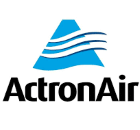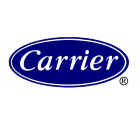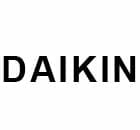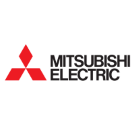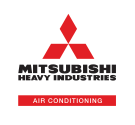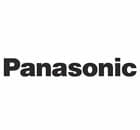General Air Conditioner FAQs
Choosing the best air conditioner to buy depends on various factors such as room size, energy efficiency, noise level, brand, and budget. You should research and compare different models and brands to find the one that fits your needs and preferences. For assistance, please reach out to us or check out our air conditioner buying guide.
The price of a decent air conditioner can vary depending on factors such as the type of air conditioner, size/capacity, brand, and features. Generally, our window AC units can range from $400 to $1000, while Split wall mounted AC units range from $600 to $5,000. Ducted conditioning systems range from $2,500 to $14,000. Ceiling cassette systems range from $600 to $6000. Portable systems range from $500 to $900. Contact us for assistance!
It’s not recommended to install a split system air conditioner yourself unless you have the necessary skills, knowledge, and experience in HVAC installation. It’s generally recommended to hire a licensed and qualified professional for safe and proper installation. Need help? Contact us!
The best and cheapest air conditioner will depend on your specific needs and preferences. If you are looking for the best Air Conditioning units, we recommend reputable brands such as Daikin, ActronAir, Toshiba, Mitsubishi Electric. On the other hand, more affordable air conditioning options are available from brands such as Teco, Gree, Rinnai, Carrier, Samsung, and Haier. Let us assist you. Contact us.
The appropriate size of an air conditioner for a bedroom depends on various factors such as the size of the room, the height of the ceiling, the number of windows, and the local climate. However, a general rule of thumb is that for every square meter of bedroom space, you need approximately 150 watts of cooling power.
For a typical bedroom of around 12 square meters (130 square feet) with a standard ceiling height of 2.4 meters (8 feet), an air conditioner with a cooling capacity of 1.5 to 2.0 kW (5,000 to 6,500 BTU) would be suitable. If the bedroom has high ceilings, large windows, or is located in a hot and humid climate, you may need a larger air conditioner.
You can check our Air Conditioning calculator to find the suitable size for your requirement.
The cheapest form of air conditioning is typically a portable air conditioner or window air conditioner.
A 2.5 kW air conditioner is typically recommended for cooling a small room or area up to 20 square meters (approximately 215 square feet). However, the cooling capacity can vary based on a few factors such as the level of insulation in the room, the number of windows, the amount of direct sunlight, and the local climate. It’s important to properly measure the room and consider these factors when selecting the appropriate size air conditioner to ensure optimal cooling efficiency.
You can check our Air Conditioning calculator to find the suitable size for your requirement.
A 5kW air conditioner is suitable for cooling an area of approximately 25-35 square meters or 270-375 square feet. However, the cooling capacity of an air conditioner also depends on several factors such as the height of the ceiling, the number of windows and doors, the level of insulation, and the local climate. Therefore, it’s recommended to consult with a licensed professional or use an online calculator to determine the appropriate size of the air conditioner for your specific room or space.
You can check our Air Conditioning calculator to find the suitable size for your requirement.
Here are some of the most popular and highly rated air conditioning system:
Many air conditioner brands have efficient and reliable cooling systems, but some of the brands that are well known for their cooling performance include Daikin, Mitsubishi Electric, LG, Carrier, ActronAir and Fujitsu.
Note that specific models within each brand may vary in terms of cooling capacity, energy efficiency, and other features. Compare specifications and customer reviews before buying, and consult with an HVAC professional to determine the appropriate size and type for your needs.
Fujitsu and Mitsubishi Electric are reputable brands with their own advantages and disadvantages. While Fujitsu may be a more budget-friendly option, Mitsubishi Electric is known for its high-quality and innovative features. Ultimately, the best choice will depend on your individual needs and preferences. It’s recommended to compare the features, pricing, and customer reviews of different models from both brands to determine which one is the best fit for your specific requirements. Contact us if you need help!
While opinions on the best air conditioner brand vary, Daikin is a highly respected and popular brand in the air conditioning industry. Daikin is known for its advanced technology and energy efficiency, as well as its reliable and durable products. They offer a wide range of air conditioning systems, including wall-mounted split, ducted, and multi-split systems, to suit different needs and budgets. However, the best air conditioner brand for you will depend on your individual requirements and preferences, as well as factors such as budget and location. It is recommended to do research and compare different brands and models before making a decision.
The best AC indoor unit for you will depend on your specific needs, preferences, and the size and layout of the space you want to cool or heat. It’s important to consult with an HVAC professional to determine the most suitable unit for your particular situation. We’re here to help. Contact us!
Daikin Air Conditioner and Panasonic Air Conditioner are both reputable brands with their own strengths and weaknesses. Budget-wise, go for Panasonic if you have a limited budget. However, if budget is not a concern, Daikin may be a better option due to its reputation for high-quality and energy-efficient air conditioners.
Split air conditioners are generally considered the most efficient type of air conditioner among the ones you mentioned. This is because they are designed to cool specific rooms or zones, which helps to reduce energy waste compared to cooling an entire home or building with a ducted system. Additionally, split air conditioners often come with energy-saving features such as inverter technology and programmable thermostats.
Daikin is considered one of the best air conditioner brands because of its high-quality products, energy efficiency, and advanced technology features.
To choose an AC or an Air Conditioner unit for your home, determine the appropriate size based on your room size, consider the type of AC unit (ducted, window, split, portable), look for energy efficiency ratings, and consider features and price. It’s recommended to consult with an HVAC professional for guidance.
To choose the best air conditioner, consider factors such as the size of the room, energy efficiency, cooling capacity, noise level, brand reputation, and additional features such as remote control and air purifying functions. It’s also recommended to consult with an HVAC professional to determine the appropriate size and type of air conditioner for your specific needs.
For more information please check our Air conditioning Buying Guide.
The running cost of a ducted or split system air conditioner depends on various factors, including the energy efficiency of the unit and the size of the area being cooled. However, in general, a split system is usually cheaper to run than a ducted system, but the installation costs for a ducted system are often higher.
Both ducted AC and split AC have their own advantages and disadvantages, and the choice depends on various factors such as room size, budget, and installation requirements. Ducted AC is best suited for larger homes with multiple rooms, while split AC is more suitable for smaller spaces or individual rooms.
Ultimately, it’s important to consult with an HVAC professional to determine the best option for your specific needs.
Split systems are generally more efficient than ducted systems because they are designed to cool a specific area, while ducted systems are designed to cool an entire home or building. Split systems are also easier to install and maintain, and they offer greater control over temperature settings.
Split air conditioning systems have two main advantages over ducted systems:
- Affordable.
- Easy installation.
The best type of heating and cooling system for your home depends on various factors such as the climate of your region, the size of your home, your budget, and personal preferences.
Some popular options include split systems, ducted systems, and ceiling.
It’s best to consult with an HVAC professional who can assess your specific needs and recommend the most suitable option for you.
The cost of AC service in Sydney can vary depending on several factors, such as the type of service needed. Approx $110 Call out Fee inc GST | $140 Per Hour inc GST (Minimum 30 Mins) plus materials and parking fees if applicable.
Minimum Charge is $180 inc GST.
We charge 1/2 hour intervals after minimum call out @ $70 per half hour inc GST
Parts and consumables not included in call out fee.
For assistance, please reach out to us or book a AC service.
It is generally recommended to have your home air conditioning system serviced at least once a year. This will help ensure that the system is running efficiently and effectively, and can also help prevent any potential issues or breakdowns. However, if you notice any unusual sounds, odors, or performance issues with your air conditioning system, it is a good idea to have it checked by a professional as soon as possible, regardless of when the last service was performed. Let us assist you. Contact us!
Yes, air conditioning systems need to be serviced regularly to ensure they operate efficiently and effectively. Regular maintenance can also help prevent breakdowns and prolong the life of the system.
On average, an AC unit can last between 10 to 15 years with proper maintenance and regular servicing.
The cost to install an air conditioner in Sydney can vary depending on several factors such as the type of air conditioner, the size of the unit, the complexity of the installation, and the location of the property.
Generally, the cost of installing a split system air conditioner in Sydney can range from $799 to $1,500, while the cost of installing a ducted system can range from $2500 to $5000 or more.
It is recommended to get quotes from several reputable air conditioning installation companies in Sydney to get an accurate estimate based on your specific requirements.
The cooling and heating capacity of an air conditioner is measured in kilowatts (kW).
- 2.5 kW range is suitable for rooms approx 10 – 25 SQ meters like Bedrooms, Studys, Small lounges, Small kitchens, Small offices
- 3.5kW range is suitable for rooms approx 25 – 35 SQ meters like Bedrooms, Bedrooms with ensuites, Studys, Small lounges, Mid-sized kitchens, Small rooms with high ceilings, Offices
- 5kW to 6kW range is suitable for rooms approx 35 – 60 SQ meters like Large bedrooms, Bedrooms with ensuites, Studys, Mid-size lounges, Large kitchens, Mid-sized rooms with high ceilings, Offices
- 7 – 8kW range is suitable for rooms approx 60 – 80 SQ meters like Large lounges, Large open plan areas, Small shops, Offices
For more complex installations a heat load calculation should be performed. A heat load calculation comprises many factors such as size of area, size of windows, roof type, building material, whether there is insulation, external shading or internal shading etc. Incorrect sizing will mean inadequate cooling/heating.
If you are unsure on sizing please email us, or go to Request a Quote or call 1300 367 152
Most Air conditioning systems these days are of inverter type. Inverter air conditioners use a variable frequency drive to control the speed of the motor thus in turn the compressor. When the cooling demand is met the compressor will slow down, in return reducing running costs.
Inverter air conditioners reach the desired room temperature faster, and then constantly adjust to maintain perfect comfort. Inverter air conditioners are more economical to operate and quieter to run than fixed speed units but need to be correctly sized.
This refers to energy efficiency rating and measures the air conditioners energy consumption and efficiency. A higher EER rating on your air conditioning system means the system is more energy efficient. You can compare the ratings from each manufacturer.
This simply means that the system is able to both cool and heat.
MEPS stand for Minimum Energy Performance Standards which have been introduced by the Australian government. All systems sold by Airconditioning – Online meet MEPS requirements. This energy rating is mandatory.
Single Split system air conditioners can heat or cool one room or area effectively. It consists of one indoor unit connected to one outdoor unit.
A Multi Split air conditioner system can heat or cool multiple rooms by connecting multiple indoor units to one outdoor unit.
Both Daikin and Mitsubishi Electric are reputable air conditioner brands known for their high-quality and efficient products. The choice between the two depends on several factors, such as personal preference, budget, features required, and availability of service and support in your area.
It’s best to do some research and compare the specifications, features, and prices of the different models offered by each brand to determine which one is best suited to your needs and budget.
Additionally, consider reading reviews and getting recommendations from trusted sources such as family, friends, or HVAC professionals before making a decision.
A window-type air conditioner is a single unit that integrates all components and is mounted on a wall, with the compressor and condenser hanging outside the wall.
A portable air conditioner is also a self-contained unit that includes all components, but it is placed indoors. To release hot air from the condenser, it uses an exhaust tube that vents through a window.”
Similar to other appliances, air conditioners require regular maintenance. To ensure your system runs efficiently, we recommend you to schedule an annual maintenance appointment with a professional company. If you need a recommendation for a reliable company in your area, we’re happy to assist you.
Ideally, you should clean your aircon’s air filter once a month. At the bare minimum, you should clean it at least once every three months.
If your air conditioner is making unusual noises, it could be due to various reasons. Knocking sounds may indicate a failing condenser or compressor. Squeaking could be caused by a malfunctioning blower or condenser fan, while rattling may be due to a loose part, foreign object, or other issues.
An air conditioner may not produce cold air due to various reasons, such as a compressor or refrigerant issue, but the most common cause is a dirty air filter. A dirty filter obstructs airflow over the evaporator coils, leading to their freezing and further reduction of air flow.
A clogged air filter can restrict air flow over the evaporator coils, causing them to become excessively cold and form frost or ice that can be blown out towards you. To prevent this, clean your air filter regularly.
An air conditioner typically lasts for several years, but its performance may decline over time, leading to inefficiency and higher bills. If this happens, consider replacing it with a newer and more efficient model. Repairing an old unit may not be cost-effective, as the cost of repair may exceed the cost of a new unit.
When it comes to replacing your air conditioner, it’s not always necessary to stick with the same kW capacity size, especially if your current system is older. To determine the right size for your replacement unit, we recommend using our sizing guide. It’s a quick and easy way to ensure you get the right fit for your home.
Ducted prices can range from $3000 for a single story with 3 outlets up to $5000 for a double story home with 12 outlets and adding extra zones will add to the cost.
Consider replacing your air conditioner if you’re spending a lot on repairs. To avoid discomfort and safety issues, it’s best to replace it before extreme temperatures hit. Don’t wait until it’s too late. Contact us now.
Choosing the right size air conditioner for your home is crucial. If the unit is too large, it may cool your home too quickly, but it won’t eliminate humidity well and will be less efficient. Short-run cycles can lead to excess moisture in the air, which can result in mold and mildew. Additionally, frequent starting and stopping of the system can increase energy consumption and wear it down faster. Opt for the appropriate size to ensure optimal performance and energy efficiency. Please check our sizing guide.
A completed system typically consists of three main components: the indoor unit, the outdoor unit, and the thermostat or controller. The indoor unit includes the air handler, which contains the evaporator coil and blower fan, and is responsible for circulating air throughout your home. It may also include a furnace or heat pump for heating.
The outdoor unit, also known as the condenser or compressor, contains the condenser coil and fan and is responsible for transferring heat from inside your home to the outside.
The thermostat or controller is used to set and maintain the desired temperature in your home and can be programmed to adjust temperature settings automatically based on your schedule.
All of these components work together to create a comfortable and energy-efficient indoor environment.
We would be delighted to furnish you with all the information you require. Please don’t hesitate to reach out to us by either calling our number 1300 367 152 or submitting an online form.

